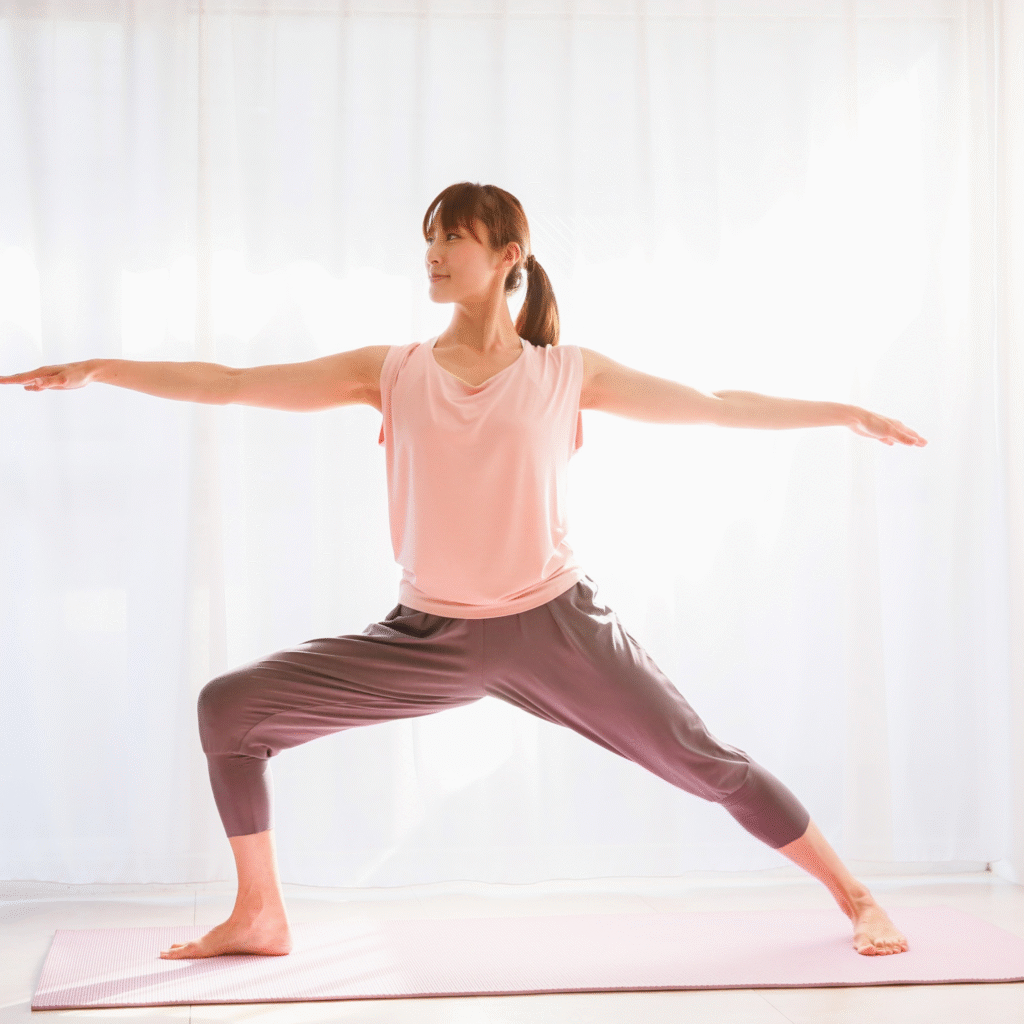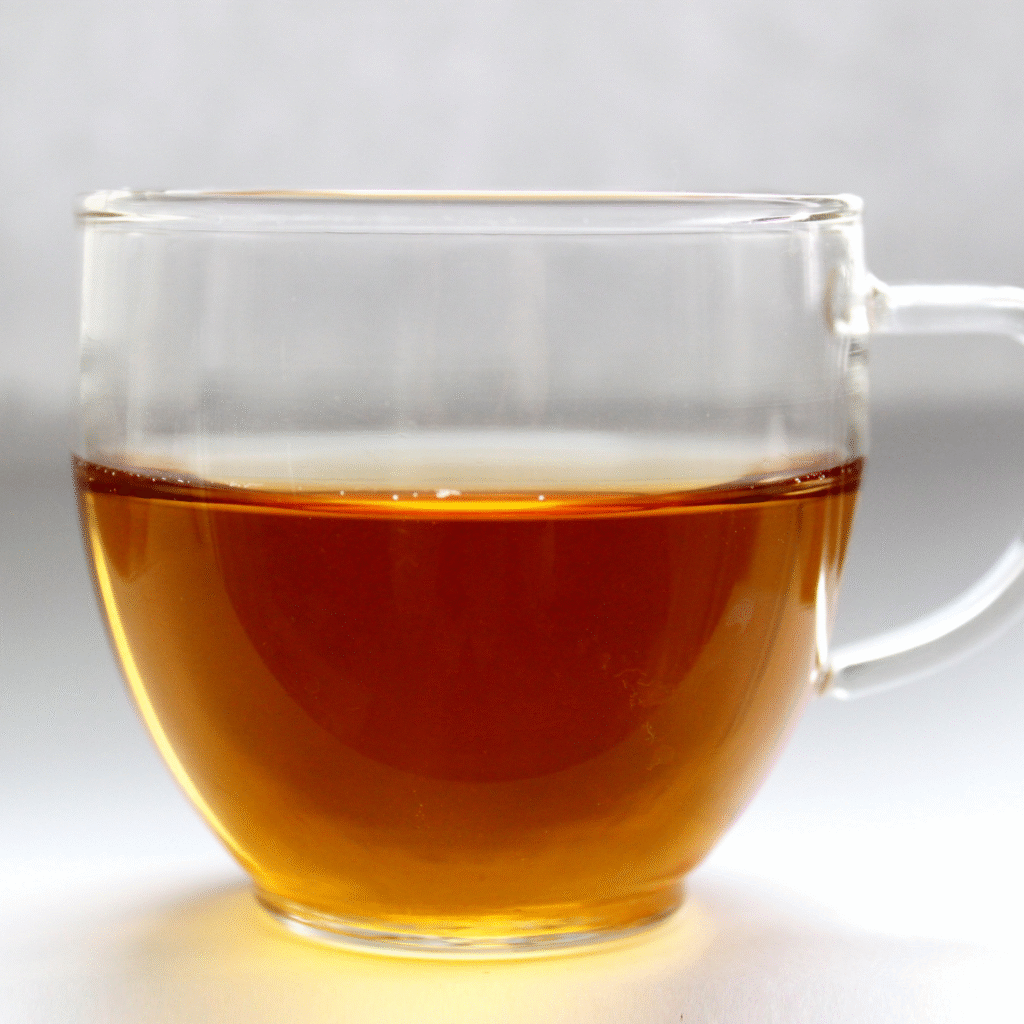Picture this: You’re in the middle of an important meeting when suddenly, it feels like someone cranked up the thermostat to 90 degrees. Your face flushes, sweat beads form, and you’re desperately fanning yourself with whatever’s handy. If you’re nodding along thinking “been there, done that,” you’re definitely not alone.
Hot flashes affect up to 75% of menopausal women, turning everyday moments into uncomfortable heat waves. But here’s the good news I want to share with you: you don’t have to white-knuckle your way through this transition. With the right menopause lifestyle changes hot flashes can become much more manageable, and in some cases, significantly reduced.
I’ve spent years researching and working with women navigating menopause, and I’m excited to share 15 proven strategies that can help you reclaim your comfort and confidence during this phase of life.
Understanding Hot Flashes: Your Body’s New Normal
Before we dive into solutions, let’s quickly understand what’s happening. Hot flashes occur when declining estrogen levels confuse your body’s internal thermostat (the hypothalamus). Think of it like a smoke detector that’s a bit too sensitive – it goes off even when there’s just a hint of “heat.”
These episodes typically last 1-5 minutes but can feel like an eternity. The good news? Natural ways to reduce hot flashes are not only effective but also support your overall health during this transition.

1. Master Your Plate: Dietary Tips for Hot Flashes Menopause
What you eat directly impacts how you feel, and this couldn’t be truer when it comes to hot flashes. Research shows that certain foods can either trigger or soothe these heat waves.
Best Foods to Eat to Reduce Hot Flashes
| Hot Flash Heroes | Why They Work | How to Include Them |
| Soy products (tofu, edamame, tempeh) | Contains phytoestrogens that mimic estrogen | Add to stir-fries, smoothies, or snacks |
| Flaxseeds | Rich in lignans and omega-3s | Sprinkle on yogurt, blend in smoothies |
| Cold-water fish (salmon, sardines) | Anti-inflammatory omega-3 fatty acids | Aim for 2-3 servings per week |
| Leafy greens | High in calcium and magnesium | Include in salads, smoothies, soups |
| Whole grains | Stabilize blood sugar levels | Replace refined grains with quinoa, brown rice |
Foods That Fan the Flames (Avoid These)
- Spicy foods – they literally add heat to your system
- Caffeine – can trigger hot flashes and disrupt sleep
- Alcohol – dilates blood vessels, worsening heat sensations
- Refined sugars – cause blood sugar spikes that can trigger episodes
Pro tip: Keep a food diary for two weeks to identify your personal triggers. What sets off your friend’s hot flashes might be perfectly fine for you!
2. Move Your Body: Exercise for Menopause Hot Flashes
Here’s something that might surprise you: regular exercise can reduce hot flash frequency by up to 50%. I know, I know – the last thing you want to do when you’re already overheated is work up a sweat. But hear me out.
Best Exercise Types for Hot Flash Relief
Low-Impact Champions:
- Swimming – the water keeps you cool while you exercise
- Walking – simple, effective, and you control the intensity
- Yoga – combines movement with stress reduction (double win!)
- Tai Chi – gentle, meditative movement that reduces stress hormones
Yoga Poses to Relieve Hot Flashes:
- Child’s Pose – calms the nervous system
- Legs Up the Wall – promotes circulation and relaxation
- Supported Bridge Pose – opens the chest and reduces anxiety
- Corpse Pose – ultimate relaxation position

The key is consistency over intensity. Aim for 30 minutes of moderate activity most days of the week. Your body will thank you with fewer and less severe hot flashes.
3. Chill Out: Stress Reduction Techniques Hot Flashes
Stress and hot flashes are like oil and fire – they make each other worse. When you’re stressed, your body releases cortisol, which can trigger hot flashes. And when hot flashes hit, they create more stress. It’s a vicious cycle, but one you can break.
Meditation and Breathing Exercises for Hot Flashes
The 4-7-8 Breathing Technique:
- Inhale for 4 counts
- Hold for 7 counts
- Exhale for 8 counts
- Repeat 3-4 times
This simple technique activates your parasympathetic nervous system, telling your body it’s time to relax. I recommend practicing this twice daily, plus anytime you feel a hot flash coming on.
Mindfulness Meditation Benefits:
- Reduces stress hormone production
- Improves sleep quality
- Increases pain tolerance
- Enhances overall well-being
Even just 10 minutes a day can make a significant difference. There are excellent apps available that offer guided meditations specifically designed for menopausal women.
4. Sleep Smart: Sleep Improvement for Night Sweats
Night sweats can turn your bedroom into a battlefield, leaving you exhausted and dreading bedtime. But with the right strategies, you can create a sleep sanctuary that works with your changing body.
Best Nighttime Habits to Reduce Night Sweats
Your Cool Sleep Environment Checklist:
- Keep bedroom temperature between 60-65°F (15-18°C)
- Use breathable, moisture-wicking fabrics
- Layer bedding so you can easily adjust
- Consider a cooling mattress pad or pillow
- Use a fan for air circulation
- Keep ice water by your bedside
Smart Pajama Choices: Choose breathable bamboo pajamas or moisture-wicking fabrics over cotton. These materials pull sweat away from your skin and dry quickly, keeping you comfortable throughout the night.

5. Dress for Success: Clothing and Home Environment Adjustments
Your wardrobe can be your best ally in managing hot flashes. It’s time to think strategically about what you wear and how you set up your spaces.
Dressing Tips for Hot Flash Management
The Layer Game:
- Base layer: Moisture-wicking camisole or tank
- Middle layer: Light cardigan or blazer (easy to remove)
- Outer layer: Only when necessary
Fabric Friends:
- Cotton blends
- Linen
- Bamboo
- Moisture-wicking synthetics
Fabric Foes:
- Heavy wools
- Synthetic blends that don’t breathe
- Tight-fitting clothes
- High necklines
Home Environment Hacks:
- Keep fans in frequently used rooms
- Use sheer curtains to block heat while allowing light
- Consider smart thermostats that you can adjust remotely
- Keep cooling towels in the freezer for quick relief
6. Explore Natural Alternatives: Alternative Treatments Hot Flashes
If you’re looking for options beyond traditional hormone therapy, there are several alternative treatments hot flashes that many women find helpful.
Acupuncture Benefits for Menopause Hot Flashes
Research shows that acupuncture can reduce hot flash frequency by up to 36%. This ancient practice helps regulate your body’s temperature control system and reduces stress hormones.
What to expect:
- Sessions typically last 20-30 minutes
- Most women need 8-12 sessions for optimal results
- Effects often last 3-6 months after treatment ends
Herbal Helpers
Herbal Teas to Calm Hot Flashes:
- Red clover – contains natural phytoestrogens
- Black cohosh – traditional hot flash remedy
- Sage – helps reduce sweating
- Chamomile – promotes relaxation and better sleep

7. Weight Matters: Menopause Weight Management Hot Flashes
Here’s a fact that might motivate you: maintaining a healthy weight can significantly reduce hot flash intensity and frequency. Extra weight acts like an insulation layer, making it harder for your body to cool down efficiently.
How Weight Loss Helps Reduce Hot Flashes
The Science:
- Fat tissue produces heat
- Excess weight affects hormone production
- Improved cardiovascular health enhances temperature regulation
- Better sleep quality when carrying less weight
Realistic Weight Management Strategies:
- Focus on portion control rather than strict dieting
- Increase protein intake to maintain muscle mass
- Stay hydrated – sometimes thirst masquerades as hunger
- Practice mindful eating to avoid emotional eating triggers
8. Supplement Smart: Vitamins and Nutrients for Support
While a balanced diet should be your foundation, certain supplements can support your lifestyle changes for hot flashes.
Top Supplements for Hot Flash Relief
| Supplement | Benefits | Typical Dosage |
| Soy Isoflavones | Mimics estrogen naturally | 40-80mg daily |
| Vitamin D3 + Calcium | Bone health and temperature regulation | 1000-2000 IU + 1200mg |
| Magnesium | Muscle relaxation and sleep | 300-400mg before bed |
| Omega-3 | Reduces inflammation | 1000-2000mg daily |
| Adaptogens (Ashwagandha) | Stress hormone balance | 300-600mg daily |
Important note: Always consult with your healthcare provider before starting new supplements, especially if you’re taking other medications.
9. Quick Cool-Down: How to Cool Down Hot Flashes Fast Naturally
When a hot flash hits, you need immediate relief. Here are my go-to strategies for how to cool down hot flashes fast naturally:
Emergency Cool-Down Kit
- Cold water bottle – apply to wrists and neck
- Cooling towel – keep one in the freezer
- Handheld fan – portable relief anywhere
- Cold shower or splash cold water on face and wrists
- Deep breathing – the 4-7-8 technique works wonders
The 60-Second Cool-Down Routine
- 0-10 seconds: Start deep breathing
- 10-20 seconds: Remove outer layer of clothing
- 20-30 seconds: Apply cold to pulse points (wrists, neck)
- 30-45 seconds: Continue controlled breathing
- 45-60 seconds: Use fan or find air circulation
10. Hydration Nation: The Power of Staying Cool Inside
Proper hydration is one of the simplest yet most overlooked ways to manage hot flashes. When you’re dehydrated, your body struggles to regulate temperature effectively.
Hydration Hacks:
- Drink ice water during hot flashes
- Keep water bottles in the freezer
- Add cucumber, mint, or lemon for extra cooling
- Aim for 8-10 glasses daily, more on hot days
- Avoid excessive caffeine which can dehydrate you
11. Sleep Optimization: Creating Your Cool Sanctuary
Quality sleep is crucial for hormone regulation and overall hot flash management. Let’s create the perfect sleep environment for your menopausal body.
The Perfect Cool Sleep Setup
Essential Items:
- Cooling gel mattress pad – maintains consistent temperature
- Breathable sheets – bamboo or moisture-wicking materials
- Multiple thin blankets – easy layering and removal
- Sleep mask with cooling technology – blocks light and provides relief
- White noise machine – masks the sound of fans
Pre-Sleep Routine for Hot Flash Relief:
- Lower bedroom temperature 1 hour before bed
- Take a lukewarm shower (not hot!)
- Practice relaxation breathing
- Keep ice water and cooling towel nearby
- Wear minimal, breathable sleepwear
12. Mediterranean Magic: Benefits of Mediterranean Diet for Hot Flashes
The Mediterranean diet isn’t just good for your heart – it’s fantastic for managing hot flashes too! This eating pattern emphasizes foods that naturally help regulate hormones and reduce inflammation.
Mediterranean Hot Flash Heroes
- Olive oil – rich in healthy fats that support hormone production
- Fish – omega-3s reduce inflammation
- Nuts and seeds – provide essential minerals
- Fresh fruits and vegetables – antioxidants and fiber
- Whole grains – steady blood sugar levels
13. Mindfulness and Hot Flash Management
Anxiety and hot flashes often go hand in hand, creating a cycle that can feel overwhelming. The good news? Mindfulness practices can break this cycle and provide significant relief.
Menopause Hot Flashes and Anxiety Management
Quick Mindfulness Techniques:
- 5-4-3-2-1 Grounding: Name 5 things you see, 4 you hear, 3 you touch, 2 you smell, 1 you taste
- Body scan meditation – releases physical tension
- Loving-kindness meditation – reduces self-criticism during difficult moments
14. Product Recommendations: Your Hot Flash Toolkit
Based on research and user feedback, here are some highly-rated products that can support your hot flash management journey:
Top-Rated Relief Products
For Sleep:
- TheraFlow Bed Fan – targeted cooling for night sweats
- Cooling Gel Mattress Pad – maintains comfortable temperature all night
- Hypoallergenic Bedding Set – reduces irritation and promotes better sleep
For Daily Management:
- Essential Oil Diffuser with Stress-Relieving Blends – aromatherapy for relaxation
- Water Bottle with Infuser – makes hydration more enjoyable
- Digital Food Scale for Portion Control – supports healthy weight management
For Exercise and Wellness:
- Yoga Mat and Props Set – perfect for gentle, cooling exercises
- Meditation App Subscription – guided practices for stress reduction
15. Avoiding Triggers: Your Personal Hot Flash Map
The final piece of the puzzle is identifying and avoiding triggers for hot flashes during menopause. Every woman is different, but common triggers include:
Universal Triggers to Watch
- Spicy foods and hot beverages
- Tight clothing and synthetic fabrics
- Stressful situations and lack of sleep
- Alcohol and excessive caffeine
- Hot showers and saunas
- Sudden temperature changes
Creating Your Personal Trigger Map
Keep a simple diary for 2-3 weeks tracking:
- Time of day hot flashes occur
- What you ate/drank beforehand
- Your stress level (1-10 scale)
- Sleep quality the night before
- Environmental factors (temperature, clothing)
Your Journey Forward: Embracing This New Chapter
Managing hot flashes during menopause doesn’t have to feel like an uphill battle. With the right combination of menopause lifestyle changes hot flashes can become a manageable part of your journey rather than a daily struggle.
Remember, what works best for you might be different from what works for your sister, friend, or neighbor. Be patient with yourself as you try different strategies, and don’t hesitate to work with healthcare providers who understand menopause.
Your action plan starting today:
- Choose 2-3 strategies from this list that resonate with you
- Implement them consistently for at least 4-6 weeks
- Track your progress and adjust as needed
- Add more strategies gradually as these become habits
You’ve got this! Menopause is not the end of feeling comfortable in your own skin – it’s just the beginning of a new chapter where you get to prioritize your comfort and well-being like never before.
What’s your next step? I’d love to hear which of these strategies you’re most excited to try. Share your experience in the comments below, and let’s support each other through this journey!

Affiliate Disclosure: This post contains affiliate links, which means I may receive a small commission if you make a purchase through these links. This comes at no additional cost to you and helps support the creation of helpful content like this. I only recommend products I believe in and that align with the health and wellness strategies discussed in this article. Your trust is important to me, and I’m committed to providing honest, valuable information regardless of any affiliate relationships.




